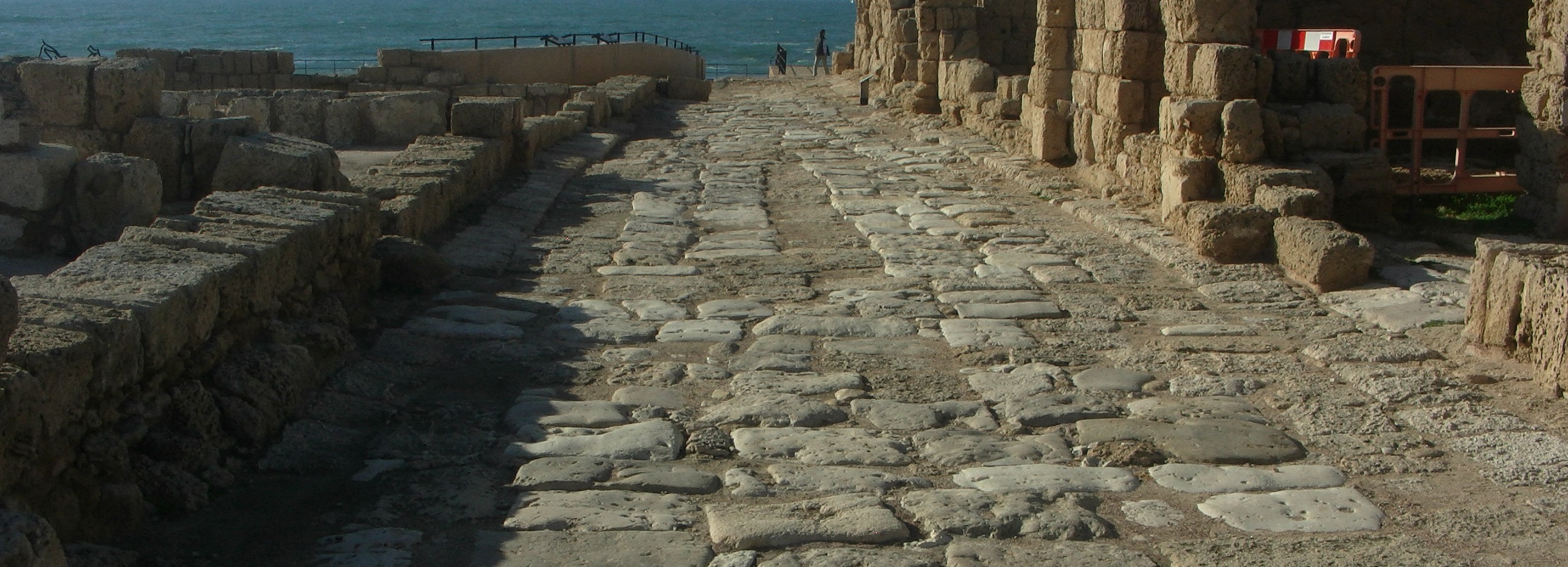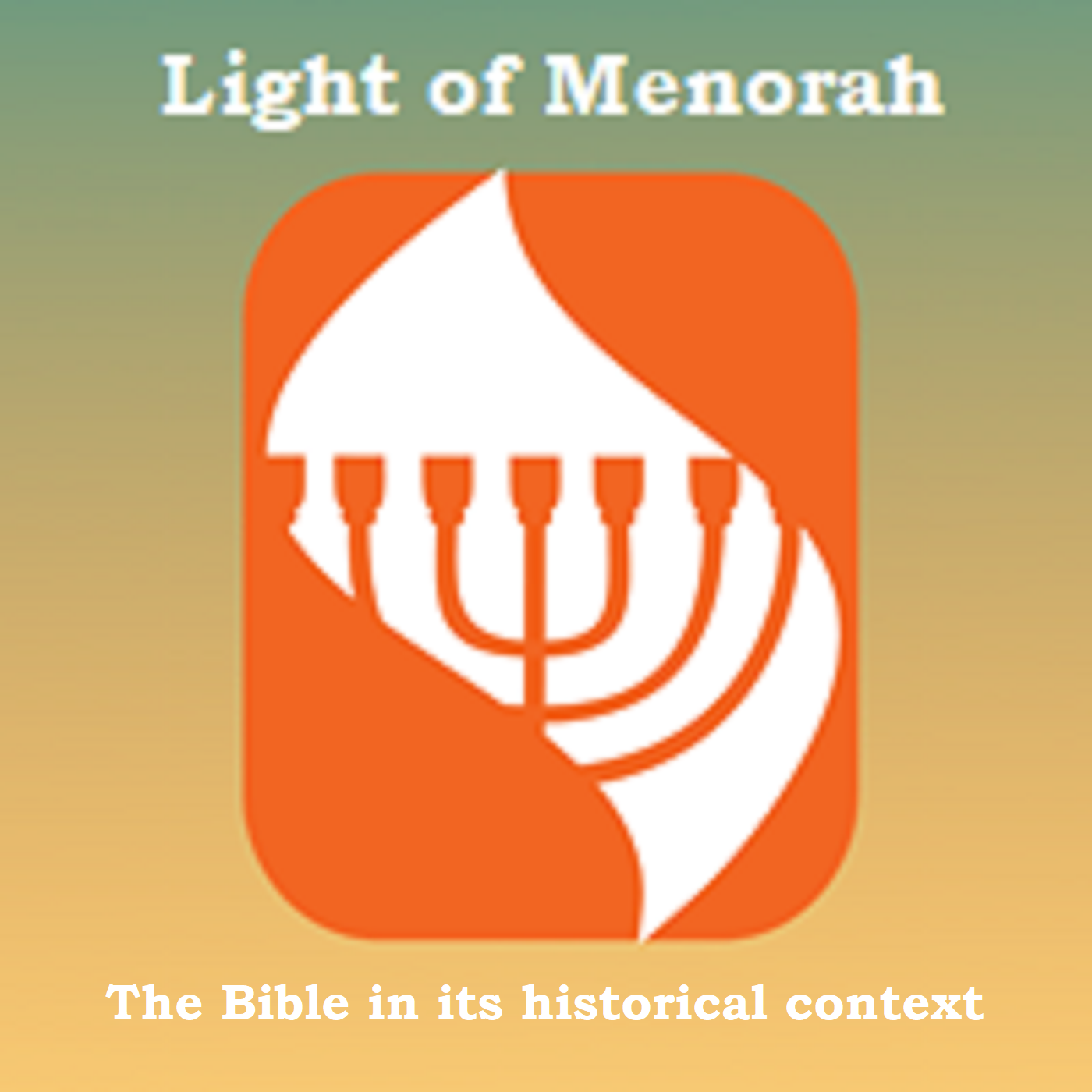
30.8K
Downloads
383
Episodes
The study of the Bible in its historical context - with a focus on the archaeology, history, geography, customs , culture, and even the languages of the ancient Middle East. WE ask what did they understand THEN - the original intent of the Lord - so that we can expand and enrich our understanding NOW and thus become true disciples of Adonai Yeshua as in John 8:31-32.
Episodes
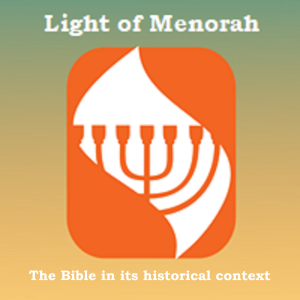
Thursday Apr 24, 2025
ANNOUNCEMENT AFTER PASSOVER - back to the normal schedule
Thursday Apr 24, 2025
Thursday Apr 24, 2025

The links for the two articles related to Easter from the website, "You Got Questions" are below. Once again even though it has not been proven absolutely, there is a possibility the word Easter comes from the name of a pagan goddess in the early Roman church. Thus, this possibility means we should consider not using the word Easter a possible name of a pagan goddess of fertility, to name the day Jesus rose from the dead.
Link 1 - the origin of Easter - https://www.gotquestions.org/easter-bunny-eggs.html
Link 2 - is Easter pagan? - https://www.gotquestions.org/Easter-pagan-holiday.html
I also mentioned the awesome teaching from Rabbi Jonathan Cahn entitled, "The Easter Bunny Heresy." This is an great lesson that for me cemented my resolve never to use the word Easter again as it relates to the Resurrection of the Lord.
Link to the video - https://youtu.be/be7F4xVOKDQ?si=Dmj9becTjTU8O0zC
While we are returning to the regular schedule I am now republishing the Bible study series, "Fie Small Stones." These are five minute Bible study videos. The first one is now out. In case you missed it at the website here's the lin to Episode 1 in the series - https://lightofmenorah.podbean.com/e/five-small-stones-episode-1-weak-vs-strong-1-cor-127-29/
Rev. Ferret - who is this guy?
 Rev Ferret in Hierapolis Turkey
Rev Ferret in Hierapolis Turkey
What's his background? Why should I listen to him? Check his background at this link - https://www.dropbox.com/s/ortnret3oxcicu4/BackgrndTeacher%20mar%2025%202020.pdf?dl=0

Thursday Apr 24, 2025
Five Small Stones Episode 1 - Weak vs Strong 1 Cor 1:27-29
Thursday Apr 24, 2025
Thursday Apr 24, 2025
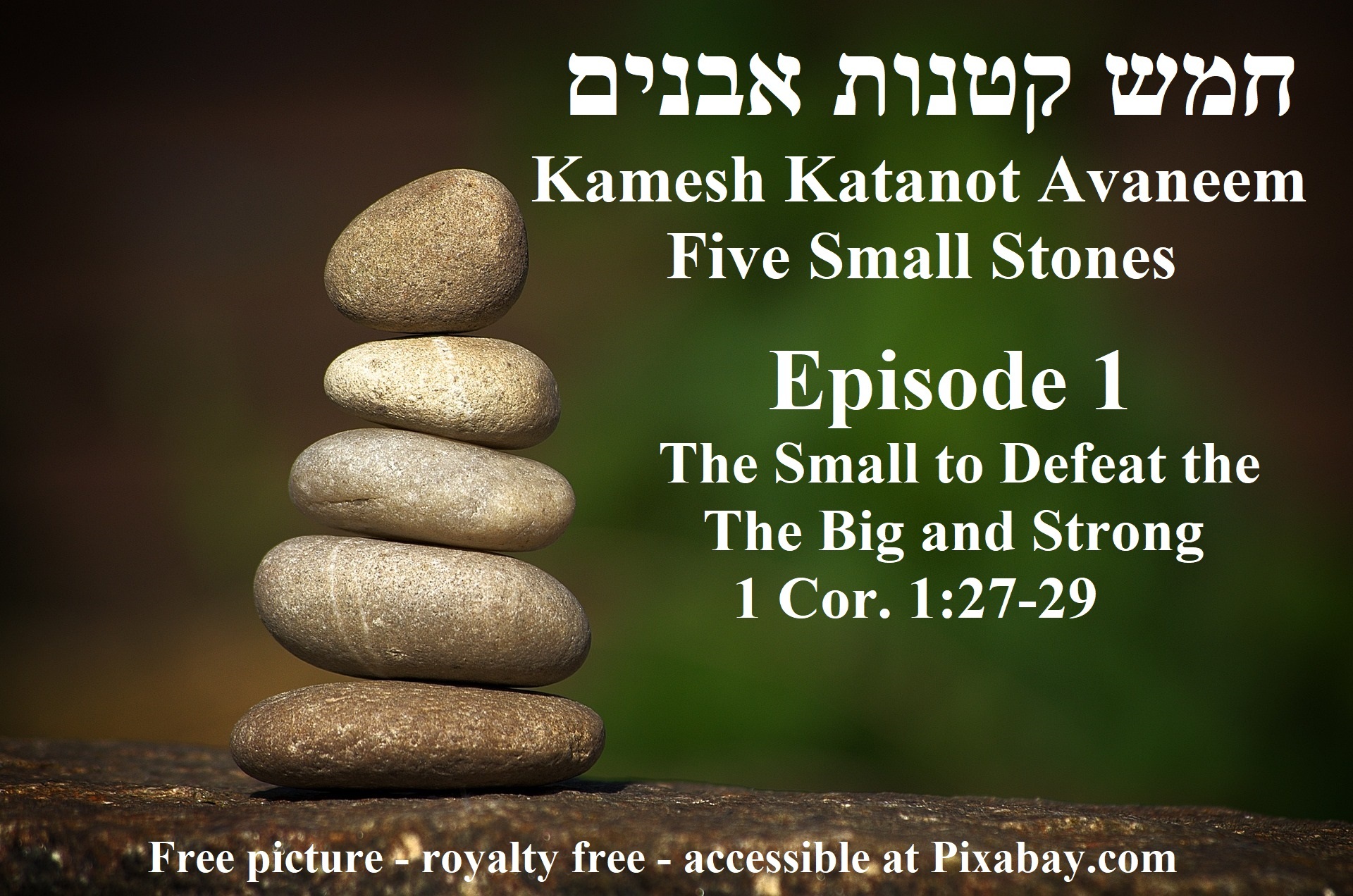

Friday Apr 18, 2025
Truth Nugget 30 - WHERE IS THE GARDEN OF GETHSEMANE?
Friday Apr 18, 2025
Friday Apr 18, 2025

A Place Called Gethsemane
The Passion Week account of Jesus happens during the annual feast of Passover for the Jews. This is one of three times that every Jew was required to travel to Jerusalem to celebrate the feast. Jesus being a devout Jew went to the city as well not only for the feast but to complete His awesome mission. Not every Jew in the world could possibly come but it is estimated that 1 to 1.5 million people would be in the city during Passover. The picture below from the Temple Institute in Israel shows the 1000’s entering the city at Passover.

Since Jerusalem was a city of perhaps an estimated population 35,000 to 80,000 depending on the archaeologist, it is clear that the city could not handle such a dramatic increase in population. Every extra room was rented and those not finding rooms camped out on the hills nearby or they sought lodging in nearby towns like Bethlehem or Bethany. Many of those who camped out in the hills around Jerusalem would more than likely camp on the beautiful slopes of the surrounding hills like Mount of Olives east of Jerusalem. (Vander Laan 177)
After Jesus and His apostles had completed the Passover Seder meal they went to the Mount of Olives to a place called Gethsemane at the Mount of Olives in an olive grove. The account can be found in Matt 26:36, Mark 14:32, Luke 22:39 and John 18:1. The word Gethsemane is the English transliteration of a Greek word which was based on two Hebrew words. (Picture below from Permaculture Research Institute, is a good idea of what the side of the Mt. of Olives would have looked like in Jesus’ day).

The first was GAT. The Hebrew word stands for a press. The second word is SHEMIN which means oil – like olive oil. The plural in Hebrew is Sheminim. Thus, Gat Sheminim means a press for oils and referred to in most cases an olive press. (Vander Laan 178)
Today in Israel one can visit Tel Maresha in the Negev. At this tel archaeologists found the remains of a perfectly intact olive press. Olive presses were built in caves close to an olive grove. The cave itself would have “windows” cut into the walls and an air shaft in the roof. These “windows” and the airshaft were used to control the airflow and temperature since processing olives required a certain temperature range. The olives themselves were processed by first smashing them with a millstone to break open the skins. The smashed olives were then put into special porous bags and crushed under the weight of huge weighted down cypress logs in the main press room. The olive oil would run down into a basin which had a drain directly into a collection jar below the pile of bags of crushed olive pulp. The jar of oil would be sealed when filled and made ready to be taken to market. (Vander Laan 178) The picture below is of the Gat Sheminim at Tel Maresha Israel courtesy of Israel Travel Inc.

Where is this exact location of where Jesus prayed and is there a connection to the Gat Sheminim and the word Gethsemane? As far as location is concerned, “Christian tradition has always placed Gethsemane on the lower slopes of the Mount of Olives – though today the Roman Catholic and Russian Orthodox churches hallow different sites.” (Reader’s Digest 186) Recently, however, archaeologists working at the base of the Mount of Olives made a very interesting discovery. “A cave nearby was recently identified as containing an ancient olive press. Early 6th century tradition supports this cave as being Jesus’ Gethsemane.” (Vander Laan 179) Moreover, no archaeological evidence nor evidence from ancient descriptions of the city of Jerusalem and its surroundings as ever found a place called the Garden of Gethsemane. This name is a modern label attached to an area that tourists would come to experience what the place called Gethsemane in the Bible was like. “The designation ‘Gethsemane’ does not occur outside the gospels. Even Luke 22:39 omits the name, using the more general description, ‘the Mount of Olives.’”(Flusser 251) What we know for a fact is that the Mount of Olives had an olive grove and near olive groves one will find a Gat Sheminim or an olive press.
One might conjecture the following based upon the fact that in the Jewish culture God taught His people difficult theological truths with the use of pictures – as in the case of the word tekton and 1 Peter 2:4-6. Jesus went to the Mount of Olives and entered the gat sheminim, or the olive press, to find a secluded place to pray. He would prefer the seclusion of the press since there were many possible pilgrims camping out on the slopes of the hill for Passover and the press would be located in a quiet cave. Perhaps Jesus knew the owner and was able to gain private access to the olive press. Again, all of this is conjecture but it is based on the archaeological evidence that is factual.
In the gat sheminim, or in a location very close, we know that Jesus prayed and was in deep stress and anguish. In the account found in Luke 22:44 Jesus’ sweat was like drops of blood. What is intriguing about this picture is a verse found in Isaiah 53:5. This verse for us Christians says He was crushed for our inequities. When one makes the connection between the discovery of the olive press and how it was used and these verses it would seem that God is showing us how Jesus was crushed – like an olive crushed by the weight of a huge cypress log with heavy weights attached. It would seem that God Himself is making use of the archaeological discoveries to open up the world of the Bible to us so that its meaning is enhanced. Do we know for a fact that Jesus was in the olive press or the Gat Sheminim? No we do not. But, these discoveries perhaps are given to us to intensify our understanding of His word and the picture of the gat sheminim can simply be used to help us understand the scope of Jesus’ stress and anxiety that horrible night.
Works Cited
* That the World May Know Set 3 Ray Vander Laan c 1996 Focus on the Family Publishing Colorado Springs CO
* Egypt and Bible History: C. Aling Baker House book Grand Rapids MI c 1981
* “Reader’s Digest Atlas of the Bible”, C 1981 Reader’s digest, Plesantville, NY
* “Jesus”, David Flusser, Magnes Press, Hebrew Univ., Jerusalem, 1998
* Josephus WAR 5:141
* “First Easter: The True and Unfamiliar Story”, Paul L. Maier, Harper and Row, NY 1973.
* Archaeology and the Bible: The Best of Biblical Archaeology Review, “The Garden Tomb: Was Jesus Buried Here?”, Gabriel Barkay, Vol. II, Archaeology in the World of Herod, Jesus and Paul.
Rev. Ferret - who is this guy?
(John & Robin somewhere in the Middle East)

What's his background? Why should I listen to him? Check his background at this link - https://www.dropbox.com/s/ortnret3oxcicu4/BackgrndTeacher%20mar%2025%202020.pdf?dl=0

Wednesday Apr 16, 2025
Archaeology of Passover - Lesson 5 - Resurrection Sunday: the End of the Beginning
Wednesday Apr 16, 2025
Wednesday Apr 16, 2025

In lesson 5 we will focus on Resurrection Sunday. In previous sessions we reconnected to our Jewish roots and found an amazing "picture" that relates the 1st Palm Sunday to the events of the 1st Exodus. The 1st Palm Sunday - if it was a Sunday happened in 30 A.D. - would have been Nissan 10. The day in Exod. 12:1-3 when the fathers of each household would pick the Passover lamb. We learned that the Father, our God, chose His son Jesus on the 1st Palm Sunday, on Nissan 10, as His LAMB OF GOD. What an amazing picture. And, when we go to the next Sunday, the day Jesus rose from the dead, we will see another "picture" from the foundation of Christianity, our Jewish roots, that will add to and enhance our understanding of this explosive event in the doctrine of all Christian believers, the Resurrection of Jesus the Bread of Life and the First Fruits of those who will also rise from the dead.
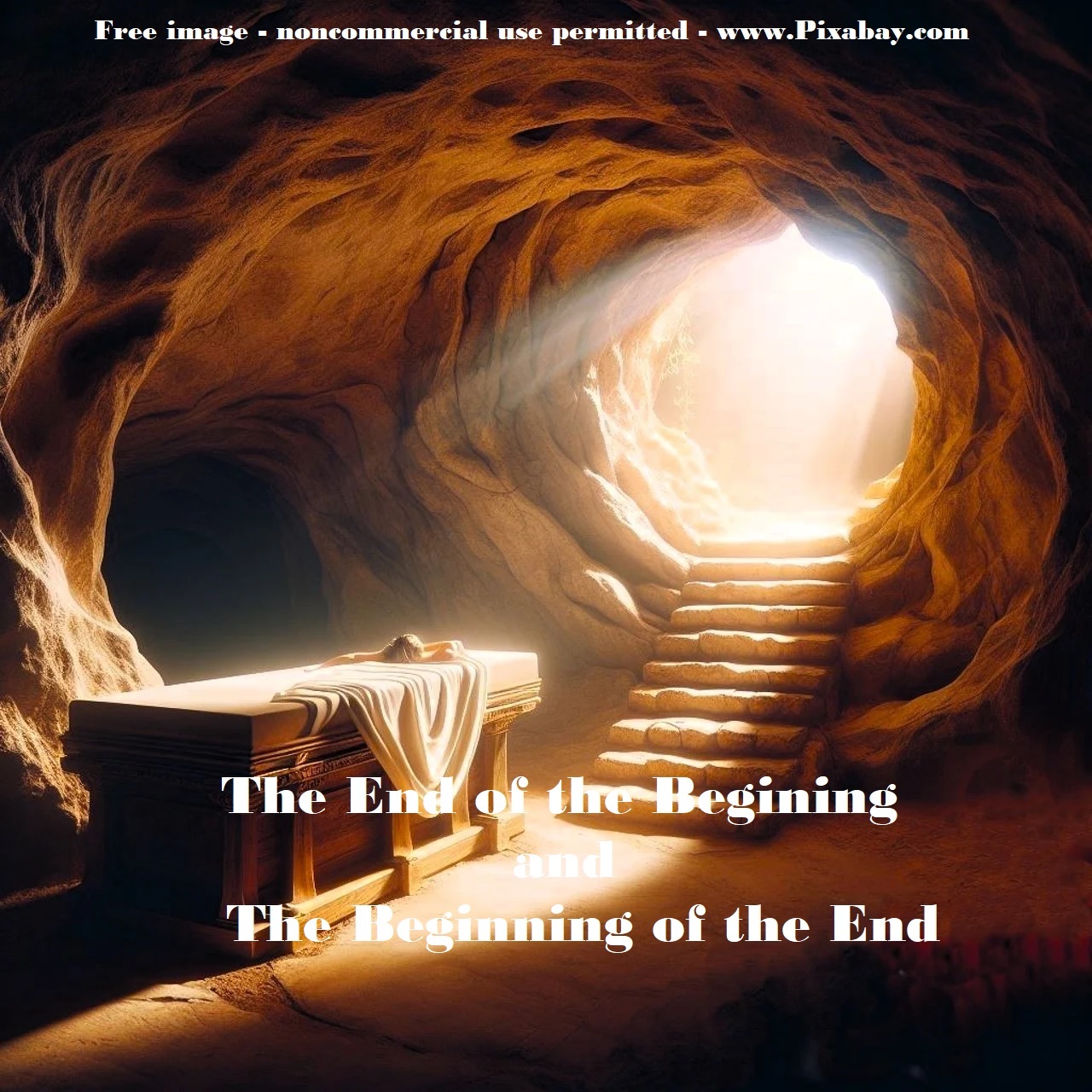
Links for this lesson ...
Rev. Ferret's video - where is Gethsemane? - filmed on location in Israel -
https://www.dropbox.com/s/mh36zp9i5ta7g74/Gat%20Sheminim%20Real%20Story%20v6.mp4?dl=0
Joel Kramer's video - the location of Jesus' trial - filmed on location in Israel -
https://www.youtube.com/watch?v=fx3qtmik_Fg&list=PL0xmKFdTYCJUBPesnN4vK9_uFyf540NsB&index=10&t=0s
Ray Vander Laan's article on the New Tomb - https://www.thattheworldmayknow.com/a-new-tomb
Pictures of tombs in Jesus' day - https://www.dropbox.com/sh/h79kcqbbeb7vf65/AADxSidFpnf0jn3aHSXfZaJpa?dl=0
Dr. Barkey - video of Dr. Barkey proving that the Garden Tomb is not the tomb of Jesus - https://www.youtube.com/watch?v=dndRgZGvNNM
Rev. Ferret's video - THE MIRROR OF PASSOVER -
Rev. Ferret - who is this guy?

What's his background? Why should I listen to him? Check his background at this link - https://www.dropbox.com/s/ortnret3oxcicu4/BackgrndTeacher%20mar%2025%202020.pdf?dl=0

Tuesday Apr 15, 2025
Archaeology of Passover - Lesson 4 - The Last Supper - a Jewish Seder? Huh?
Tuesday Apr 15, 2025
Tuesday Apr 15, 2025

Why unleavened bread for Passover? Christians say that leaven represents sin. Well, yes and no. We are not ancient Hebrews. We never lived in ancient Egypt 3500 year ago. If we did we'd see something totally different. Why? Because the Bible was written to those Hebrews who were slaves in Egypt and prior to their slavery had adopted the ways and the gods of Egypt. We need to hear what they heard and see what they saw and try and understand a they did so we can rightly understand what God is teaching us and telling. This has a direct impact on the bread Jesus took and said that it was HIS body. This is too amazing.
And we will get into the issue of what day did Jesus have His Last Supper, the Passover Meal of the Messiah? If you read Matt 26:17 and say that it is correct then Jesus died on a Saturday if you think Jesus died in 33 A.D. - it results in us contradicting the Bible! And what about the Last Supper - did Jesus do a Seder? He never did!! He couldn't have. Why? He is God and He gave us the Torah and He never changes and will never go against His own commands. Just because some in Jesus' day did the Passover meal on days they decided were right, we don't listen to their ideas that are not connected to God's word. So hang to your seats. This session will blow you away.
Here's the links for articles and a video that will enhance your studies in this 4th session.
LINK - article on the Egyptian god Amun - https://www.ancient.eu/amun/
LINK - article on the Egyptian god Ra - https://www.arce.org/resource/ra-creator-god-ancient-egypt
LINK - article on the location of the upper room - https://www.biblicalarchaeology.org/daily/biblical-sites-places/biblical-archaeology-sites/jesus-last-supper-tomb-of-david/
LINK - article on the origins of the Seder - https://schechter.edu/the-origins-of-the-seder/
LINK - video lesson entitled "The Mirror of Passover." This takes this series and expands upon it even further. The Passover of Adonai is an amazing event that seems to provide a mirror the Lamb of God and the Passover Lamb and the new creation in Genesis and the new creation in the book of Revelation - https://www.youtube.com/watch?v=ipaeu7AQZ8Y&t=836s
Rev. Ferret - who is this guy?

What's his background? Why should I listen to him? Check his background at this link - https://www.dropbox.com/s/ortnret3oxcicu4/BackgrndTeacher%20mar%2025%202020.pdf?dl=0

Monday Apr 14, 2025
Archaeology of Passover - Lesson 3 - The Ram of God and the Last Supper
Monday Apr 14, 2025
Monday Apr 14, 2025

We will focus on the Last Supper and we will see how knowing ancient Egypt enhances our understanding of not only the Passover meal of Israel but how it helps us see the Last Supper, the Passover meal of the Messiah, in a deeper and more intense way.
Another concept we will study is the Jewish Seder. What is a Seder and when did it develop? You will be amazed to see that Jesus NEVER did a Seder and, even the Jewish people prior to 70 A.D., never did a Seder. Again, we are dealing with real history and we will see that the Jewish Seder that we know today had its beginnings in Jesus' day and before. But, Jewish sources show clearly that the Seder was established after 70 A.D. as a response of the rabbis to figure out what to do now that the Temple was destroyed and they could not do the Passover meal as commanded by God in the place He commanded, in Jerusalem. After 70 A.D. Passover and the Appointed time of Unleavened Bread was not a pilgrimage event any more. Now the rabbis sad you could do it in your house anywhere to keep the feast alive. On top of that we will also see that Jesus did not do a Passover meal as commanded in Exodus 12. His meal was something unique and distinct but it was only understood in light of the Passover meal.
Here's the links for articles and a video that will enhance your studies in this 4th session.
LINK - article on the Egyptian god Amun - https://www.worldhistory.org/amun/
LINK - article on the Egyptian god Ra - https://www.arce.org/resource/ra-creator-god-ancient-egypt
LINK - article on the location of the upper room - https://www.biblicalarchaeology.org/daily/biblical-sites-places/biblical-archaeology-sites/jesus-last-supper-tomb-of-david/
LINK - article on the origins of the Seder - https://schechter.edu/the-origins-of-the-seder/
LINK - video lesson entitled "The Mirror of Passover." This takes this series and expands upon it even further. The Passover of Adonai is an amazing event that seems to provide a mirror the Lamb of God and the Passover Lamb and the new creation in Genesis and the new creation in the book of Revelation - https://youtu.be/ipaeu7AQZ8Y
Rev. Ferret - who is this guy?

What's his background? Why should I listen to him? Check his background at this link - https://www.dropbox.com/s/ortnret3oxcicu4/BackgrndTeacher%20mar%2025%202020.pdf?dl=0

Sunday Apr 13, 2025
Archaeology and the Passover - Lesson 2 - Palm Sunday: The Palm and the Lamb
Sunday Apr 13, 2025
Sunday Apr 13, 2025

Session 2 - we continue our focus on the 1st Palm Sunday probably in 30 A.D. We ask why did the Lord pick this day to ride into Jerusalem? Was it just the day that was convenient or was it part of a plan? Is there something about this Sunday that they understood almost 2000 years ago but we don't since we are not Jewish and we did not live then. And what's the deal about the palm branches? In those days the palm branch to the Jews was not a symbol of victory like Rome or Greece - that's a pagan meaning and devout religious Jews would never use such a pagan meaning. For the Jews then it was the symbol of the land of Israel. If you waved a palm branch in Jesus' day as they did it's like us raising the American flag today like after 9/11 and shouting out, "USA, USA, USA!" Waving palm branches was a patriotic gesture in those times in Israel. So, let's delve into our continued study and walk those ancient streets and paths to try and grasp what they knew, what they understood so that the Bible's meaning for us is enhanced and our walk with Rabbi Jesus becomes more passionate and committed.
Here's links to some awesome articles that will enhance your study ...
The article from Jerusalem Perspective on Jesus' last ride into Jerusalem - https://www.jerusalemperspective.com/1402/
Rev. Ferret's graduate paper on the archaeology of the Passion of Jesus - https://www.dropbox.com/s/28fu8ay951lwy3u/NWC%20Paper%20Passion%20Week%202020%20revised.pdf?dl=0
Rev. Ferret - who is this guy? (Teaching in Mexico in the desert)

What's his background? Why should I listen to him? Check his background at this link - https://www.dropbox.com/s/ortnret3oxcicu4/BackgrndTeacher%20mar%2025%202020.pdf?dl=0

Saturday Apr 12, 2025
Saturday Apr 12, 2025

Palm Sunday is a key holy day in the church. It marks the start of Passion Week. It also is a remembrance of Jesus' "triumphal" ride into Jerusalem. But, did this happen on a Sunday? It seems from the resources we have that the earliest date of the celebration of Palm Sunday is from the 4th century. That is close to 300 some years after Jesus ascended to heaven. That is a big gap.
This session will show that there is evidence to suggest a real possibility that Jesus did ride into Jerusalem on a Sunday. If this is the case, however, putting this event back into its historical context may challenge our long held traditions. However, as we examine the archaeology, the history, and the ancient customs of those days we will find it strengthens our doctrine - it strengthens our walk of faith.
This is session 1 of a four part series on archaeology and the Passover. Watch for the other three lessons coming soon.
One of my teachers and now a friend, Dr. Carl Rasmussen, professor emeritus of Bethel University, scholar and Bible historian extraordinaire, has an awesome website called Holy Land Photos. I am linking you to one of 100's and 100's of collections he has gathered of pictures of religious and archaeological sites across the Middle East. Here is the link to the collection of pictures of the Mt. of Olives. I know you'll love and it'll add to your study in this four part series.
Link - https://holylandphotos.org/browse.asp?s=1,2,6,19,451
Who is this guy, Rev. Ferret? (John & Robin at the airport on their way to the Middle East again)

What's his background? Why should we take time to listen to him? Here's a link to check out his background - https://www.dropbox.com/s/ortnret3oxcicu4/BackgrndTeacher%20mar%2025%202020.pdf?dl=0
Session Two coming soon
"The Palm and the Lamb"
Why did Jesus ride in on a Sunday? What's the big deal? What does it mean for me today? Just wait!!

Wednesday Apr 09, 2025
PASSOVER PODCASTS COMNG SOON - APRIL 12TH - 20TH
Wednesday Apr 09, 2025
Wednesday Apr 09, 2025

Link to Rabbi Jonathan Cahn's video lesson entitled "The Easter Bunny Heresy" - https://www.youtube.com/watch?v=be7F4xVOKDQ
Link to Joel Kramer's awesome video to answer the question where was Jesus crucified? Was it near the Church of the Holy Sepulchre or near the Garden Tomb and the bus station also known today as "Skull Hill" - https://www.youtube.com/watch?v=ufVXZBrbSsU&t=163s
The schedule of Bible study podcasts (audio and video) for the time of Passover.
One lesson per day starting on April 12th through April 20, Resurrection Sunday. All lessons can be accessed at 8 a.m. April 12 - 20 at the website - www.LightofMenorah.org Remember. Consider downloading the lessons. You can find the download button at the end of each podcast before you actually hit the play button.
LESSON 1 APRIL 12
Did the Triumphal Entry of Jesus happen on a Sunday? Could it have been a Monday? Does the TORAH hint at this event? What year did this happen, 33 A.D. (traditional man made date) or 30 A.D.?

LESSON 2 APRIL 13
The TORAH in Exodus 12 commands fathers on a precise day of the month to find the perfect male lamb that would be sacrificed by each father on 4 days later. Jews then in Jesus’ day know this. Is there some connection to “Palm Sunday” and this Torah law?

LESSON 3 APRIL 14
The first Passover meal occurred in Egypt in 1446 B.C. It seems the Lord used the Passover meal and certain key elements as a polemic against the gods of Egypt. Once we get it, it has huge applications for us in the pagan culture we live in today.

LESSON 4 APRIL 15
Some argue that Jesus’ Last Supper was a Passover Seder. Some say the Last Supper had no connection to a Seder. But Jesus’ Last Supper was the night before the evening when the Hebrews were to have the Passover meal. On top of that Jewish sources shows unequivocally shows there was NO Seder in Jesus’ day. There was a Passover meal but not a Seder.

LESSON 5 APRIL 16
God comes to us and provides the WAY back to Himself via the Cross and the Lamb of God. As Paul teaches without the Resurrection all is meaningless. So, this was the plan of the Lord from ages past. It was now FINISHED. The beginning was completed. The Resurrection was the End of the Beginning.

LESSON 6 APRIL 17
There is no Bible verse that says that Jesus is the Passover Lamb! If your Bible says He is the Passover Lamb it is a proven mistranslation. Jesus is the Lamb, He is the Lamb of God. There is a significant difference between the Passover Lamb and the Lamb of God. It is critical that we understand the difference. It is critical to see that יהוה Yahvay, the Lord, used the 1st Passover as a model for the Passover of Messiah.

LESSON 7 APRIL 18
There is no garden of Gethsemane. No way. But, there is a Gethsemane. Gethsemane is a Greek word that comes from the Hebrew. Wait till you see what a Gethsemane actually is!

LESSON 8 APRIL 19 (three short videos)
The Bible says in ENGLISH that יהוה Yahvay, Adonai the LORD, hardened Pharaoh’s heart. Huh? How can that be? Did God take away Pharaoh’s free will? The problem is the text in English. A great credible Jewish scholar, a Hebrew scholar, shows that the LORD did not harden Pharaoh’s heart. The LORD gave Pharaoh one chance after another. יהוה Yahvay never took away his free will. Video 1 is 27 minutes and video 2 is 14 minutes and video 3 is 19 minutes.

LESSON 9 APRIL 20
The Passover of Jesus was the End of the Beginning. The way was open again back to the Father. Through the Cross our sins can be totally forgiven and our debt to sin paid if we have Jesus as Lord. But, God connects the Resurrection, the End of the Beginning, to the feast of Shavuot or Pentecost. We’ll see that Shavuot or Pentecost is the Beginning of the End – it is the time of the Wheat Harvest.


Wednesday Apr 09, 2025
Exodus -13 - Exod 4:17-23 Israel - my son YESHUA - my only begotten son
Wednesday Apr 09, 2025
Wednesday Apr 09, 2025

There are four purposes to the podcast teaching series on the Torah. There are two studies, this one on the book of Exodus and a second on the book of Genesis. The four purposes can be found at this link – https://www.dropbox.com/s/aczx1wpcwk730up/FOUR%20GOALS%20MAY%2016%202021.pdf?dl=0
A major purpose is to listen to THE VERY WORDS OF GOD when Jesus said …
"You search the Scriptures because you think that in them you have eternal life; it is these that testify about Me.”(Joh 5:39)
Jesus said this between 24-30 A.D. and in those days there was no New Testament. So, those first disciples, like the 120 who were on the Mt. of Olives the day Jesus ascended to the Father, all they had was the Hebrew scriptures, the Old Testament (nothing “old” about it), and this is what they used to change the world; they used the Old Testament to proclaim the Gospel, the Kingdom of the Lord, the crucifixion and resurrection of Messiah, they used it to testify about Jesus, who He is and why He came. Just read what Stephen said before he was murdered in Acts 7 - all his scripture references are from the Hebrew scriptures. Therefore, if this is the case, we should “see” Jesus in the Old Testament.
In those days 24-30 A.D. the primary books of the Hebrew scriptures were the Torah, the first five books of the Bible, Genesis, Exodus, Leviticus, Numbers , and Deuteronomy. And we ask ourselves the question again and again, how did they “see” Jesus, how did they hear the Torah that testifies of Him? That is one of the main purposes of this podcast Bible study series.
In this lesson focusing on Exod. 4:17-23 we read that Israel is God’s son, His first born son. This is so amazing. For us this reminds us of another son of God, His ONLY begotten son, Yeshua, our Lord, Jesus. How are Israel and Yeshua connected? It is almost as if you can’t take Israel out of Jesus and you can’t take Jesus out of Israel. They are intimately connected. Just consider a few verses in Isaiah that talk about Israel. God’s servant that also clearly mean Messiah, Jesus, God’s servant.
Isa_41:8 "But you, Israel, My servant, Jacob whom I have chosen, Descendant of Abraham My friend,
Isa_44:1 "But now listen, O Jacob, My servant, And Israel, whom I have chosen:
Isa_44:21 "Remember these things, O Jacob, And Israel, for you are My servant; I have formed you, you are My servant, O Israel, you will not be forgotten by Me.
Isa_45:4 "For the sake of Jacob My servant, And Israel My chosen one, I have also called you by your name; I have given you a title of honor Though you have not known Me.
Isa_49:3 He said to Me, "You are My Servant, Israel, In Whom I will show My glory."
And then we come to Isaiah 53 and we read about the ONE who has the following characteristics …
He was despised and forsaken of men, A man of sorrows and acquainted with grief; And like one from whom men hide their face He was despised, and we did not esteem Him. Surely our griefs He Himself bore, And our sorrows He carried; Yet we ourselves esteemed Him stricken, Smitten of God, and afflicted. But He was pierced through for our transgressions, He was crushed for our iniquities; The chastening for our well-being fell upon Him, And by His scourging we are healed. All of us like sheep have gone astray, Each of us has turned to his own way; But the LORD has caused the iniquity of us all To fall on Him. (Isa 53:3-6)
Is this “servant” of the Lord? Is this Israel? But wait a minute. Let’s study Isaiah 53 very closely and we find …
But the LORD was pleased To crush Him, putting Him to grief; If He would render Himself as a guilt offering, He will see His offspring, He will prolong His days, And the good pleasure of the LORD will prosper in His hand. As a result of the anguish of His soul, He will see it and be satisfied; By His knowledge the Righteous One, My Servant, will justify the many, As He will bear their iniquities. (Isa 53:10-11)
Check out this amazing chart. It was created by "Jews for Jesus" and it supports the concept that Israel and Jesus are the SERVANT OF יהוה YAHVAY.

The servant of the Lord is Israel. The Bible says it. But, the servant of the Lord is the ONE in Isaiah 53 who is Jesus. How can Jesus be the servant when the servant is Israel? How can the servant be Israel when the servant is this suffering one, Jesus? How can Israel be God’s first born son when God’s ONLY begotten son is Jesus? It seems that you can’t take Jesus out of Israel nor Israel out of Jesus.
Come and join us. Be like one of those disciples in 24-30 A.D. who lived by obeying John 8:31-32 and studied Torah to see that all scripture testifies of Jesus. In this lesson we will again see how the Torah testifies of Yeshua HaMasiach, Jesus the Messiah, Jesus the Christ in these dramatic events of the Exodus.
Rev. Ferret - who is this guy?

What's his background? Why should I listen to him? Check his background at this link - https://www.dropbox.com/s/ortnret3oxcicu4/BackgrndTeacher%20mar%2025%202020.pdf?dl=0
